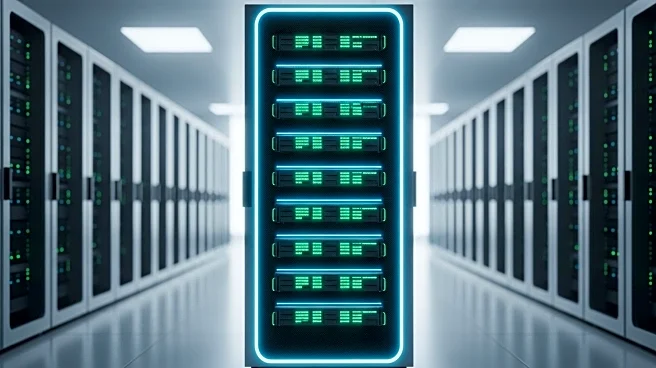What's Happening?
The real estate industry is experiencing a significant shift from traditional visible properties like office towers and shopping malls to 'invisible' properties such as cloud and data centers. This change is driven by the increasing demand for data centers, fueled by the growth in artificial intelligence workloads requiring substantial computing power and infrastructure. According to a survey by CBRE, 95% of major investors worldwide plan to increase their investments in data centers, with a notable portion allocating $500 million or more in equity to the sector in 2025. The demand for data centers is expected to surge, with Goldman Sachs forecasting a 50% increase in global power demand from data centers by 2027 and up to 165% by 2030.
Why It's Important?
The shift towards data centers represents a fundamental change in the real estate landscape, impacting investment strategies and resource allocation. As companies and investors move away from traditional real estate sectors, the focus on data centers highlights the growing importance of technology infrastructure in the global economy. This transition could lead to increased competition for funding and resources, as well as potential challenges in meeting the rising demand for data center capacity. The real estate industry must adapt to these changes to capitalize on the opportunities presented by the digital transformation.
What's Next?
Investors and real estate firms are likely to continue reallocating portfolios towards data centers and related infrastructure, such as battery storage. This trend may lead to increased collaboration between technology companies and real estate developers to build and expand data center facilities. Additionally, the industry may face challenges in securing sufficient funding to meet the growing demand, prompting discussions on innovative financing solutions and partnerships.
Beyond the Headlines
The shift to 'invisible' properties like data centers raises questions about the environmental impact of increased energy consumption and the sustainability of such developments. As data centers become more prevalent, there may be a need for regulatory frameworks to address energy efficiency and environmental concerns. Furthermore, the reliance on technology infrastructure underscores the importance of cybersecurity measures to protect sensitive data housed within these facilities.









